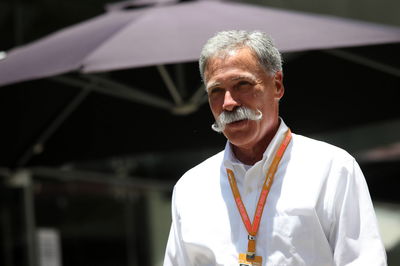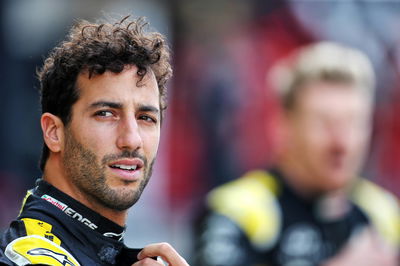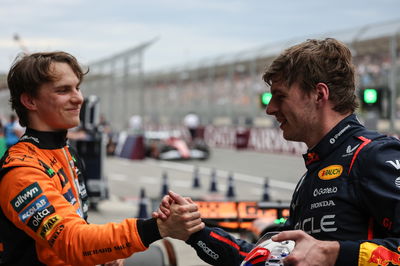New F1 teams must make good business sense – Carey
Formula 1 chief Chase Carey says any new teams must have a strong business strategy for all parties involved as the sport assesses prospective entrants.
FIA President Jean Todt is eager to see the F1 grid expand to 12 teams but accepts any new teams cannot be added if unsustainable with the sport eager to avoid a repeat of the failed 2010 growth when Lotus Racing, Virgin Racing and HRT joined only to see all three go out of business over the subsequent eight years.

Formula 1 chief Chase Carey says any new teams must have a strong business strategy for all parties involved as the sport assesses prospective entrants.
FIA President Jean Todt is eager to see the F1 grid expand to 12 teams but accepts any new teams cannot be added if unsustainable with the sport eager to avoid a repeat of the failed 2010 growth when Lotus Racing, Virgin Racing and HRT joined only to see all three go out of business over the subsequent eight years.
Towards the end of last year numerous reports surfaced on prospective new F1 teams, including a formal submission from Formula 2 squad Campos Racing to move into the premier class which initially named ex-Manor and Sauber F1 driver Pascal Wehrlein and IndyCar-bound Alex Palou as potential drivers.
Speaking alongside Todt at the Abu Dhabi Grand Prix, F1 CEO Carey made it clear commercial rights holder Liberty Media is open to welcoming new teams to the sport but only with sustainable business plans and “not just a pursuit of passion”.
“I think one of our key priorities is making and owning a team a better business. Our overriding objectives is to make better racing, better competition and better and more unpredictable action and drama. The second key priority is to make it an attractive business for others,” Carey said.
“We talk about potential teams but most of the people that I have had preliminary conversations with want to see rules in place that provide a framework for a healthier business model. A fairer level of prize fund distribution, and some discipline in the cost of the sport to make it more about how well you spend your money, not how much you spend. We think those principles will help make owning a team like in other sports it will have a franchise value.
“Owning a team makes it something that is a good business proposition not just a pursuit of passion. Obviously many of these teams have larger businesses and benefits which transcends running a team on the track, like the promotion value and marking value of the brands. But we would like to make it a better business and our priority is that we want healthy teams and quality over quantity.”
Carey has also repeated the sentiment any new F1 teams must be competitive against the rest of the grid in order to add on-track value to the sport.
“Having an 11th team that sits at the back of the track is not adding to improve the sport for the fans,” he said. “I would like that 11th team but I want them to be competitive and healthy and to bring something to the sport.”
In 2016 the F1 grid briefly increased to 11 teams with the arrival of Haas but reverted back to 10 teams following the collapse of Manor Racing before the start of the 2017 season.











